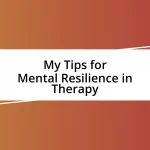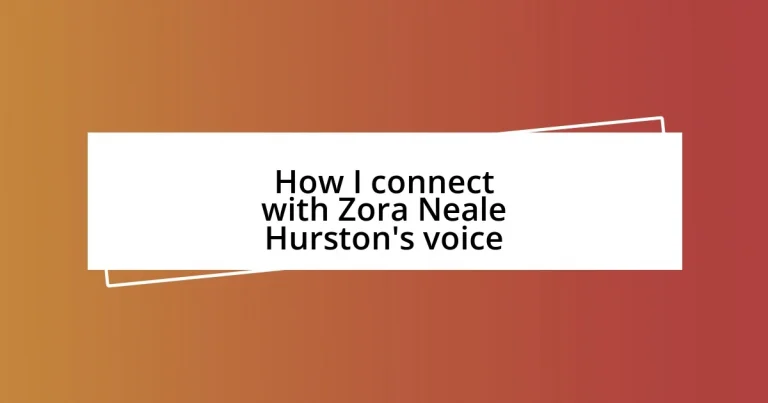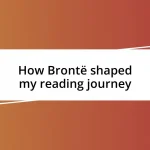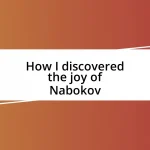Key takeaways:
- Zora Neale Hurston’s upbringing in Eatonville, Florida, and her experiences as an anthropologist significantly influenced her understanding of Black culture and storytelling.
- Her literary style is marked by vibrant dialect, vivid imagery, and symbolism, which are essential techniques that can enrich one’s own writing.
- Hurston’s lessons on authenticity, community, and identity continue to resonate today, inspiring individuals to reflect on their cultural narratives and contributions to society.
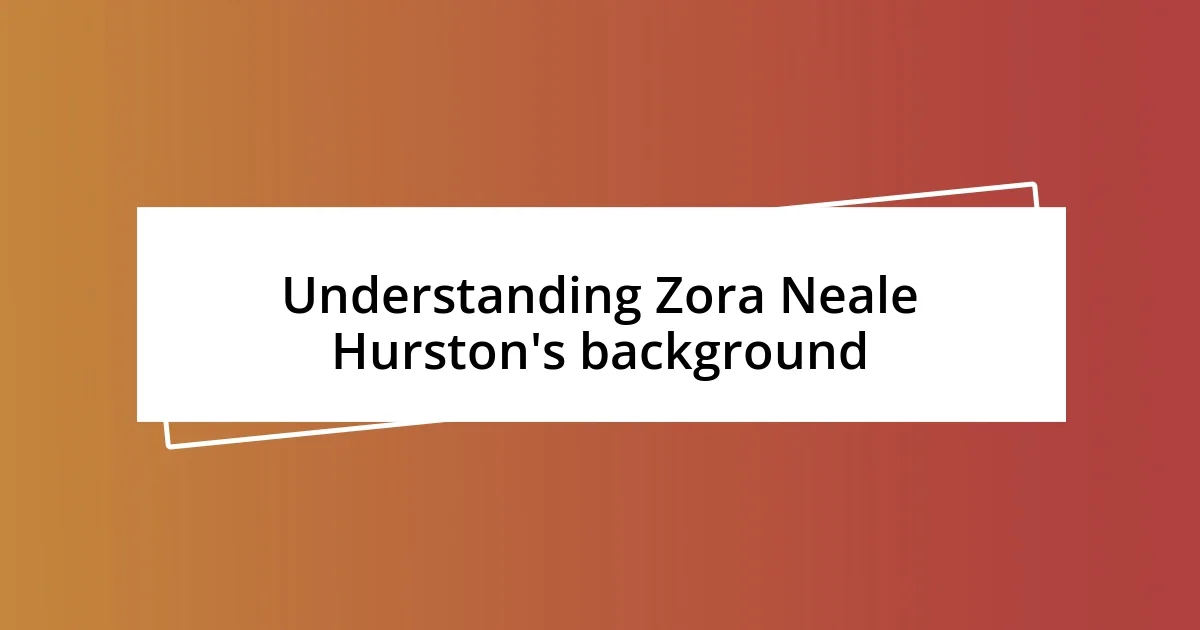
Understanding Zora Neale Hurston’s background
Zora Neale Hurston was born in 1891 in Notasulga, Alabama, but she spent much of her childhood in Eatonville, Florida, one of the first all-Black towns in the United States. It’s fascinating to think about how growing up in a community that celebrated Black culture allowed her to deeply understand and express the nuances of her heritage. Can you imagine how that environment influenced her view of the world?
Her experiences as an anthropologist also shaped her voice; she traveled extensively in the South and the Caribbean to capture folk stories and traditions. I remember reading “Their Eyes Were Watching God” and feeling the weight of those cultural narratives come alive. It’s incredible to reflect on how her research added depth to her characters and storytelling.
Another layer to her background is her education; she attended Barnard College, where she was the only Black student. I sometimes wonder how that must have felt, sitting in classes while navigating both her identity and aspirations. This juxtaposition likely fueled her drive to articulate the struggles and triumphs of Black women in her work, making her voice all the more poignant and powerful.
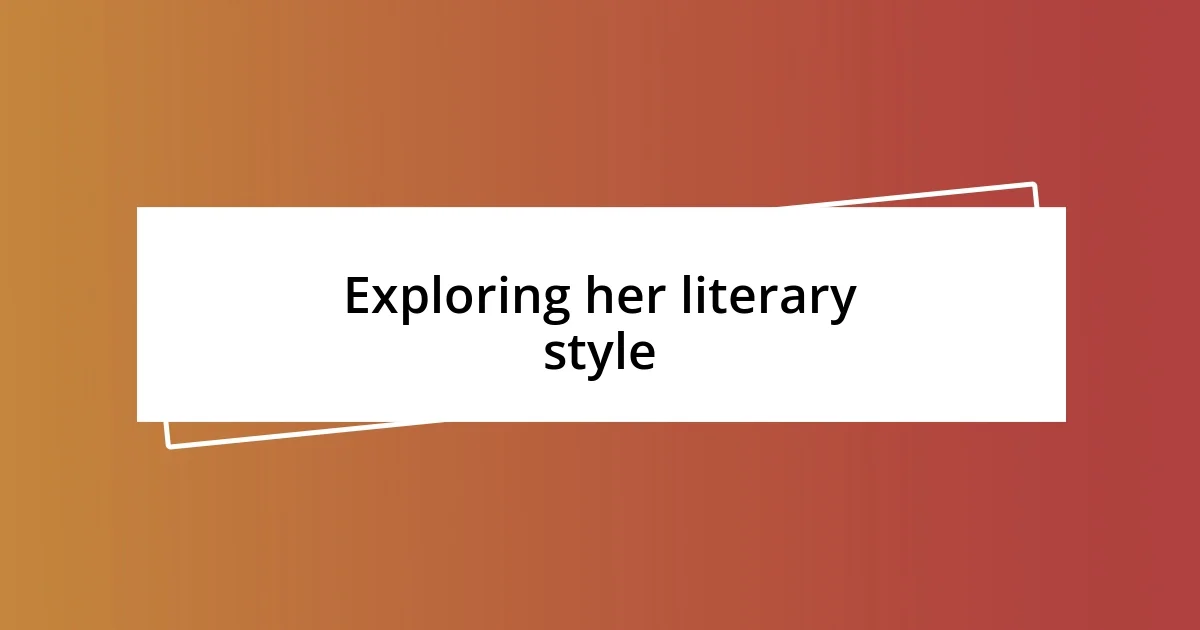
Exploring her literary style
Hurston’s literary style is characterized by her vibrant use of dialect and ability to capture the essence of African American vernacular speech. I can vividly recall a scene in “Their Eyes Were Watching God” where the dialogue flows with such authenticity that it felt like I was eavesdropping on a heart-to-heart conversation among friends. This seamless integration of language not only breathes life into her characters but also immerses readers in the rhythm of their culture, pulling us closer to their experiences.
- Vivid Imagery: Hurston paints her settings with such detail that I often find myself feeling the warmth of the Southern sun and the texture of the land underfoot.
- Symbolism: She masterfully uses symbols like the horizon in Janie’s journey, representing her dreams and aspirations—an element that resonates deeply with my own pursuit of growth.
- Folklore and Traditions: Incorporating folklore helps to preserve cultural narratives; each story brings a sense of belonging, reflecting the rich tapestry of Black heritage.
- Themes of Identity: Hurston explores the complexities of identity, especially among Black women; her honesty encourages me to reflect on my own intersecting identities in a world that often seeks to box us in.
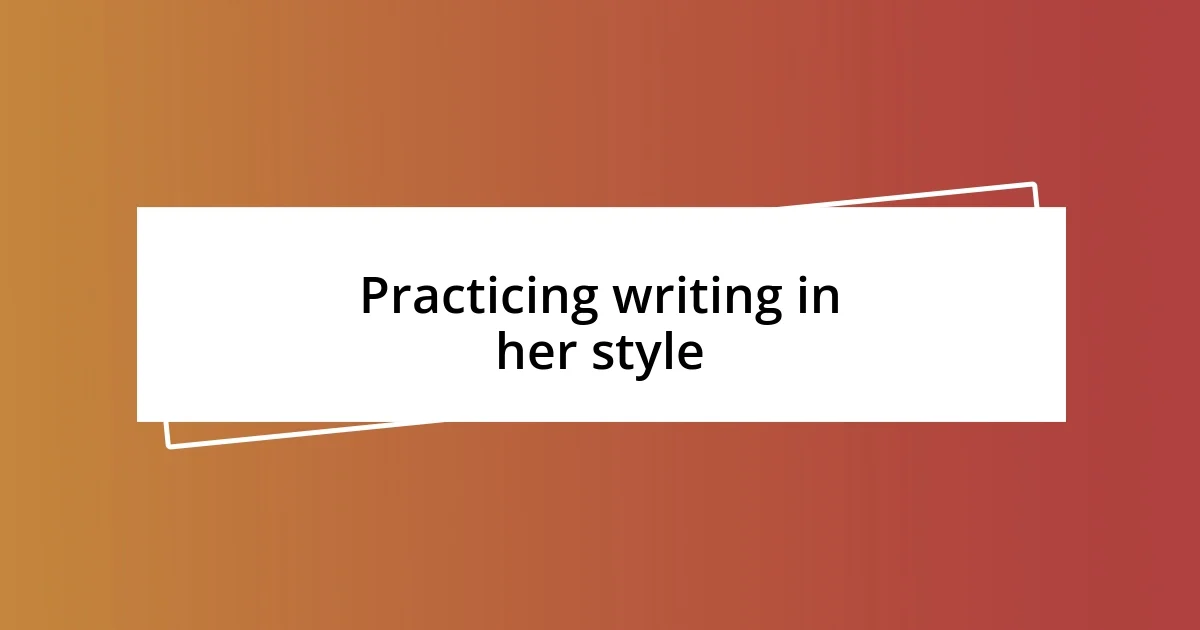
Practicing writing in her style
Practicing writing in Zora Neale Hurston’s style offers a unique window into the richness of her voice. I often find myself experimenting with dialect, hoping to capture that authentic rhythm she so masterfully conveyed. One memorable exercise for me was writing a short piece entirely in dialogue—a writing prompt that took me out of my comfort zone but opened my eyes to the beauty of vernacular speech. It made me realize how powerfully language can convey emotion and camaraderie.
Another useful technique was to focus on vivid imagery. While writing a descriptive scene, I pictured the landscape of Eatonville, imagining the scents and sounds. I wanted my readers to not just see but feel the environment, much like Hurston did. I recall feeling a sense of fulfillment as I wrote, realizing that evoking such sensory details provides readers a gateway into the story, truly immersing them in the world I’ve created.
Symbolism also plays a crucial role in Hurston’s work, and I’ve started to incorporate it into my writing. In one piece, I used an old oak tree to symbolize strength and resilience, mirroring Janie’s journey in “Their Eyes Were Watching God.” This not only added depth to my storytelling but also connected my experiences with broader themes in literature. Have you ever tried weaving symbolism into your own narratives? It’s a practice I find enriching.
| Writing Element | Practicing in Hurston’s Style |
|---|---|
| Dialect | Experimenting with authentic vernacular to capture emotion. |
| Imagery | Describing settings with sensory details to immerse readers. |
| Symbolism | Using symbols to deepen the narrative and connect to broader themes. |
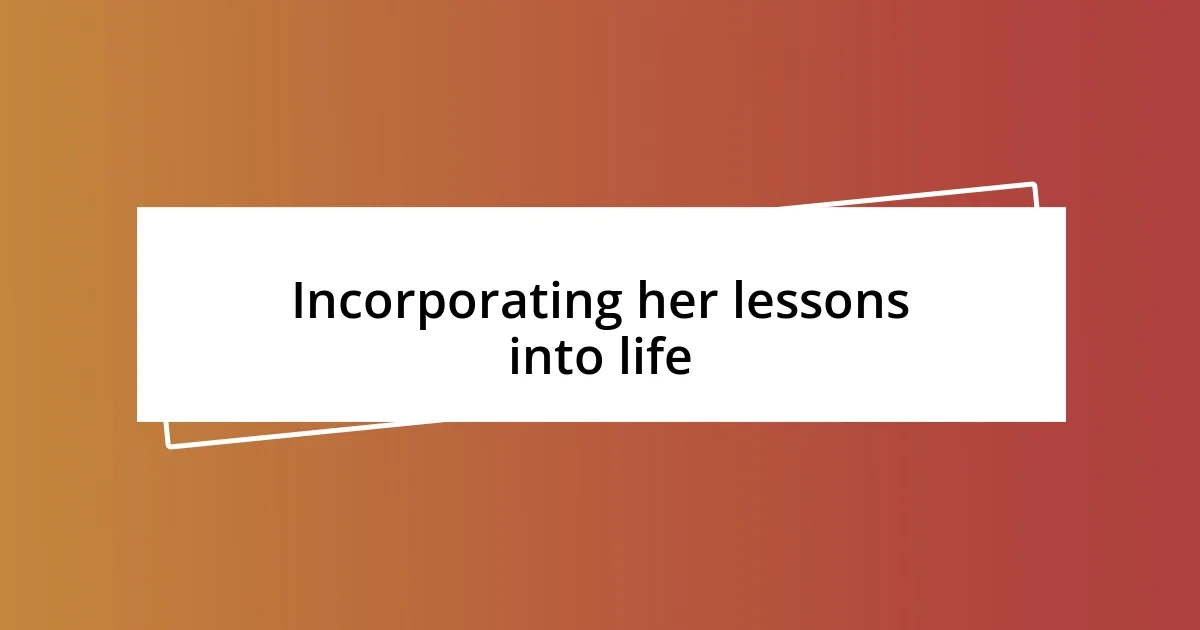
Incorporating her lessons into life
Incorporating Zora Neale Hurston’s lessons into my life has been transformative. One key lesson I hold dear is her emphasis on authenticity. I remember a time when I hesitated to express my true self for fear of judgment. Reflecting on Hurston’s boldness helped me find my voice, and I now approach conversations with a deeper sense of honesty. When was the last time you spoke your truth?
Additionally, Hurston’s celebration of community resonates deeply with me. I often think about how she illustrated the importance of connection in her work. In my own life, I’ve learned that sharing stories and experiences with loved ones nurtures a sense of belonging. Just the other week, I gathered with friends to share personal anecdotes over dinner, and it was a reminder of how valuable those moments are for building deeper bonds. Have you taken the time to connect with those around you lately?
Her exploration of identity also prompts introspection in my daily life. I find myself reflecting on my own cultural narratives, and this has inevitably influenced my choices. For instance, embracing my heritage has led me to engage more with community initiatives that celebrate diversity, allowing me to contribute to a cause that matters to me. How might your background shape your actions in the world? I often ponder this question, grateful for Hurston’s inspiration to navigate my identity with pride and purpose.
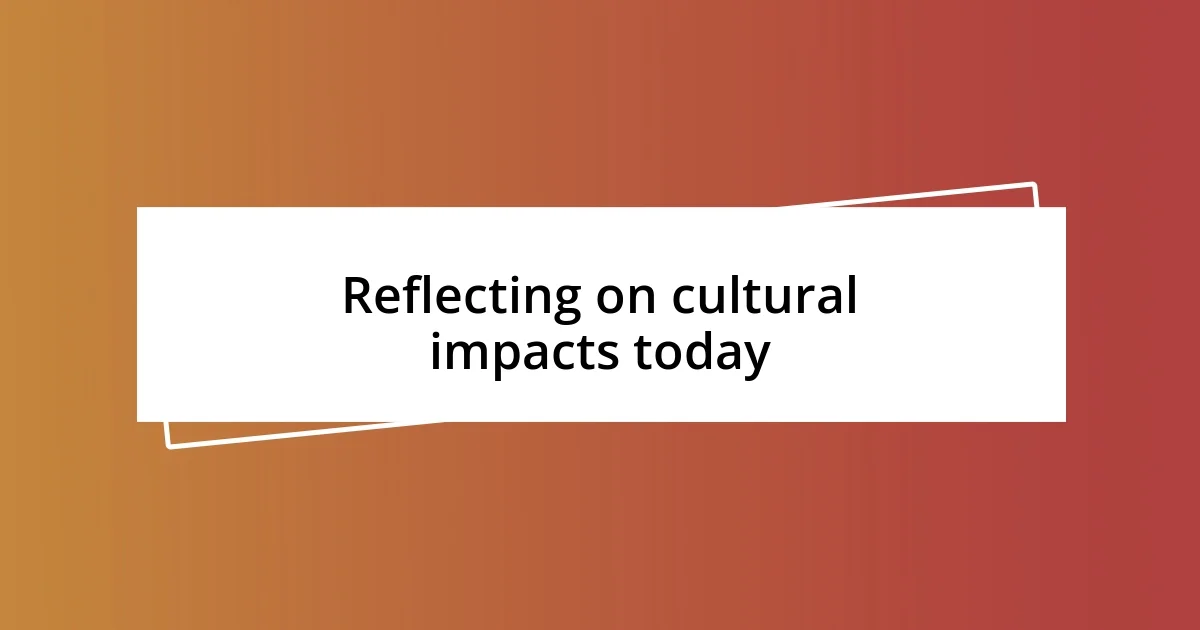
Reflecting on cultural impacts today
Reflecting on the cultural impacts of Zora Neale Hurston today reminds me of her unwavering spirit and how it resonates in contemporary discussions on race and identity. The recent movements advocating for racial justice echo her themes of resilience and the celebration of Black culture. I often find myself engaging with these movements, asking how Hurston’s voice could amplify our conversations in today’s world. Doesn’t it feel empowering to draw on her insights as we navigate complex social dynamics?
I also see her influence in the arts, especially in how modern creators honor their roots. I once attended a local showcase celebrating Black artists, and I was struck by how many performers incorporated storytelling elements reminiscent of Hurston’s style. There was a spoken word artist whose poem wove together ancestral wisdom and personal experience—an expression that felt so true to her legacy. It made me think: how often do we allow our heritage to guide our creative choices?
Furthermore, in my own writing, I notice a growing emphasis on representation and authenticity. I’ve started reflecting on my multicultural background and how rich stories emerge from it. I recently penned a piece about my family’s immigrant journey, inspired by Hurston’s exploration of heritage. It felt cathartic to reclaim narratives often overlooked. Have you considered how your background shapes your storytelling? Embracing these diverse experiences can lead to beautiful connections with others, much like Hurston did.


